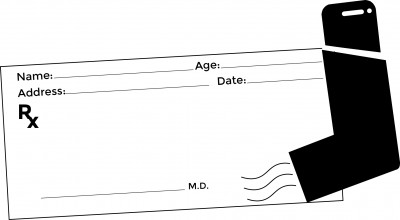
Boston Medical Center announced Wednesday an initiative, resulting from a two-year study, that would improve treatment for pediatric patients with asthma through increased medication possession once discharged from the hospital.
Meds-in-Hand, the initiative produced following the study, would deliver children the medicine they need instead of a prescription. The result of the study, published online for the March issue of Pediatrics, shows leads to a decrease in follow-up hospital visits, according to the study.
Jonathan Hatoun, an author of the study and a Boston Children’s Hospital pediatrician, stated that the study could better assist medical staff keep children healthy after they are discharged.
“These results demonstrate a unique opportunity for inpatient teams to impact outcomes after discharge for patients in need,” Hatoun wrote in an email. “Meds-in-Hand is a relatively simple intervention that overcomes a major barrier to treatment plan adherence.”
A group of BMC doctors found 37 percent of pediatric patients in 2011 did not get their prescriptions filled after leaving the hospital, which has led to more emergency visits in the future, according to the study. The reason prescriptions were not filled after a patient’s discharge was due to problems with insurance and transportation to the pharmacy.
Barry Zuckerman, a professor of pediatrics in the Boston University School of Medicine, said a family’s negative circumstances could be responsible for affecting a child’s health.
“The reality is many parents are really stressed,” Zuckerman said. “You have parents, especially low-income parents, working more than one job, [and] the children are in the care of other people during the day. Life’s not perfect.”
Though this study only focuses on pediatric patients with asthma, there have been studies that show that 33 percent of prescriptions are never filled, Zuckerman said.
In an experimental team, doctors created three “plan-do-study-act” cycles over the course of two years to supply patients with medication before discharge, according to the study. The cycles include providing prescriptions a day before discharge, patient access to the hospital pharmacy and an in-room delivery service for medication.
The BMC team was able to discharge 75 percent of pediatric patients with Meds-in-Hand.
“Medical systems are always changing, so interventions need to be adaptable as well,” Hatoun said. “By taking a quality improvement approach to this problem we were able to rapidly adjust our service based on the data and feedback we received in each cycle.”
Hatoun said he believes Meds-in-Hand will help any patient with any disease, but more studies still need to be done.
“In pediatrics, outside of asthma, there are not many similar diseases,” Hatoun said. “However, in adult medicine, there are many more patients with conditions meeting these criteria. I would hope that attempts to replicate Meds-in-Hand for those patients would achieve similar results.”
Several students said the initiative is a needed step forward to mitigate risks following a patient’s discharge.
Dale Tollman, a sophomore in the College of Engineering, said increasing pharmaceutical support for patients is a positive development.
“I believe this is a good thing,” he said. “Improving on hands-on pharmaceutical advice on how to use the medicine before they leave the hospital [is a good program].”
Wesley Rivera-Calva, also a sophomore in ENG, said a family’s financial situation can be detrimental to a member’s health, especially if they have a preexisting condition for which they need medication.
“A lot of kids that live in poverty, their families can’t afford simple public transportation to go back and forth to the hospital, to the pharmacy, to home,” he said. “Since they are living in poverty, they are probably working every single day. They can’t take time off their busy schedules and it’s just a big inconvenience, when [prescriptions] can just be handed to them through the hospital.”
Kevin Sardy, a sophomore in the Sargent College of Health and Rehabilitation Sciences, said anything a hospital can do to minimize risking a patient’s health is important.
“Obviously, it’s better to give the child the medicine as soon as possible,” he said. “Why risk it? The kid might have an asthma attack on the way to the pharmacy.”




